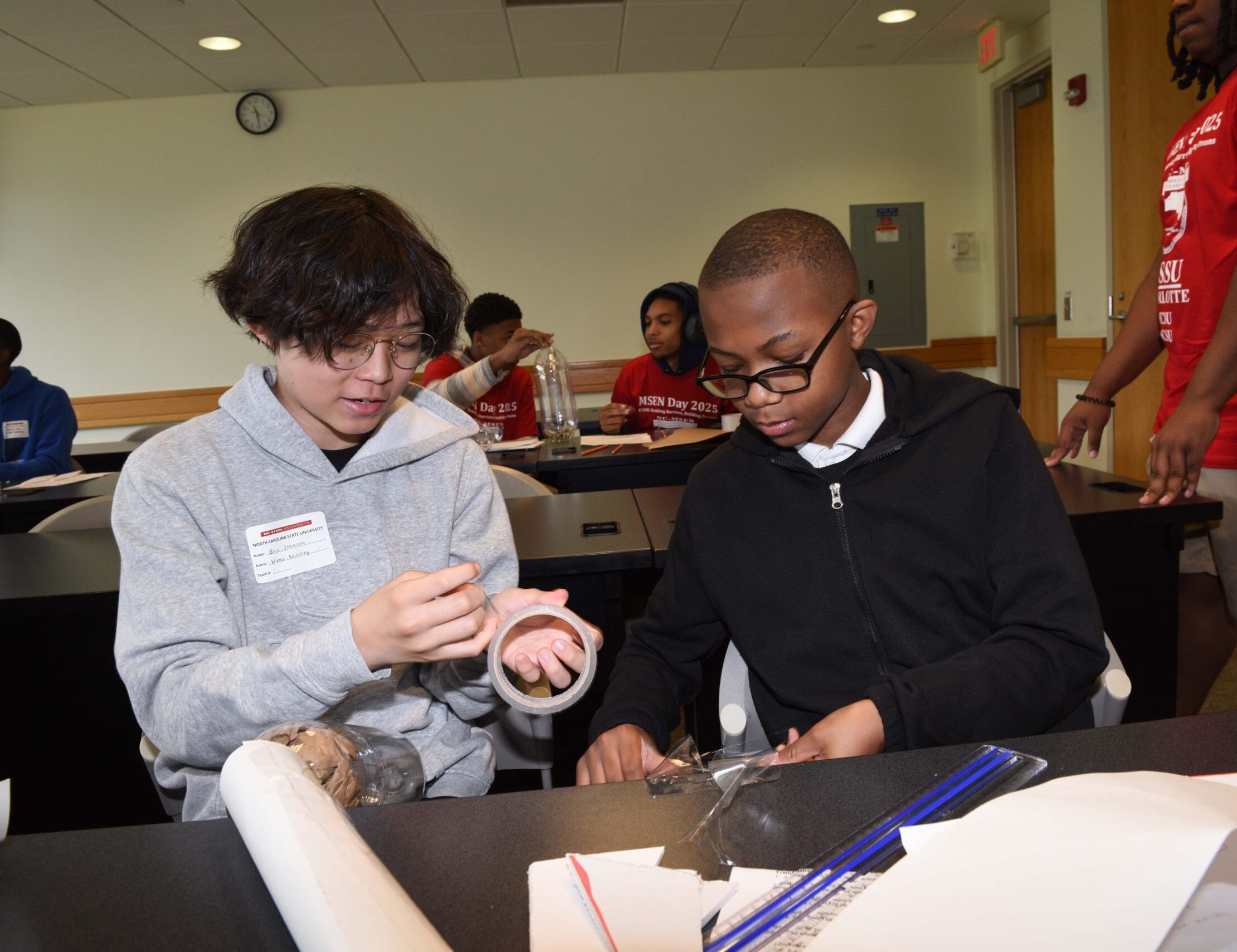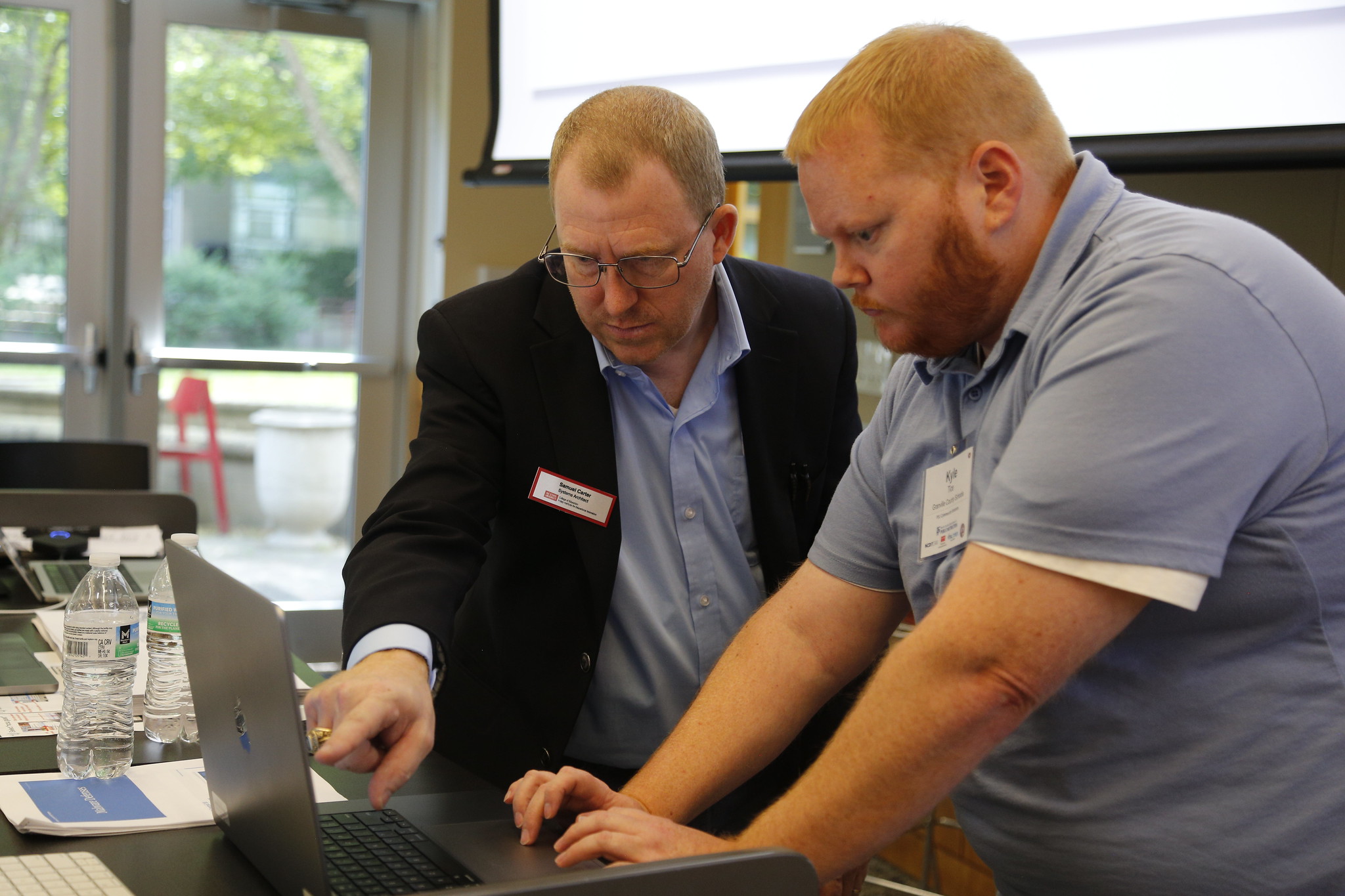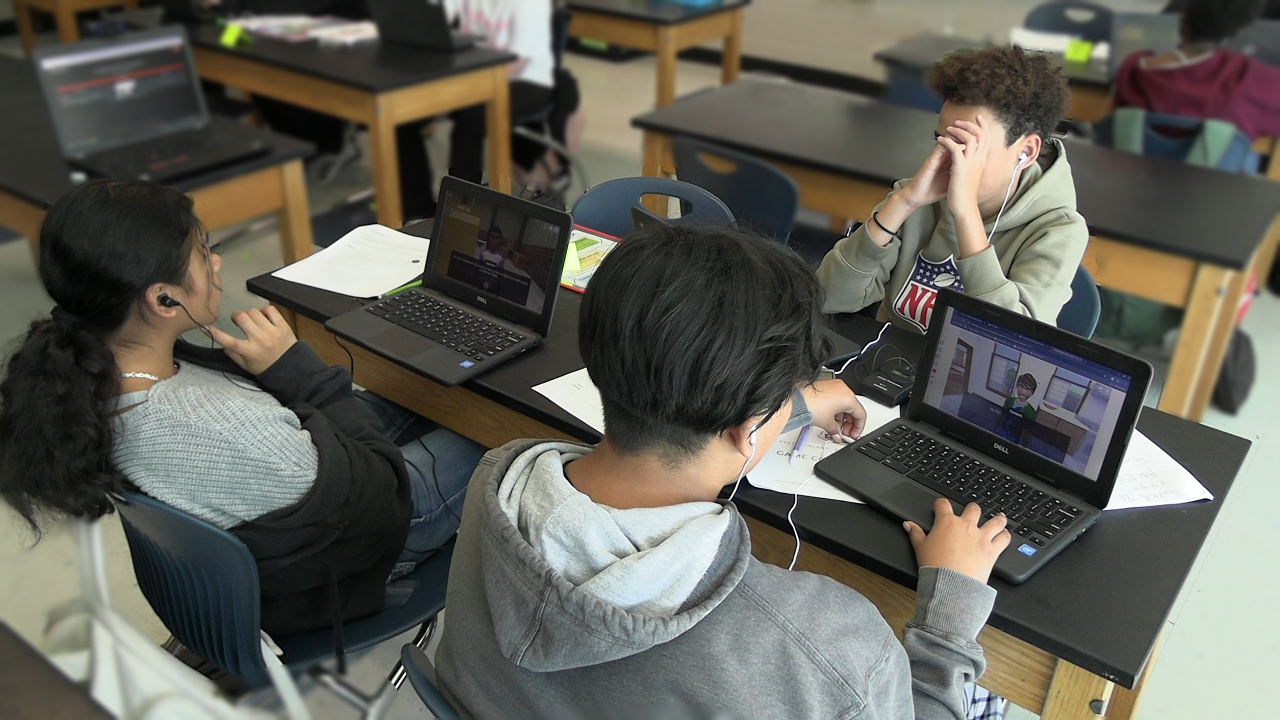Students Gain Real-World Experiences in Augmented and Virtual Realities at MSEN Summer Camp with Newcombe Family Donation
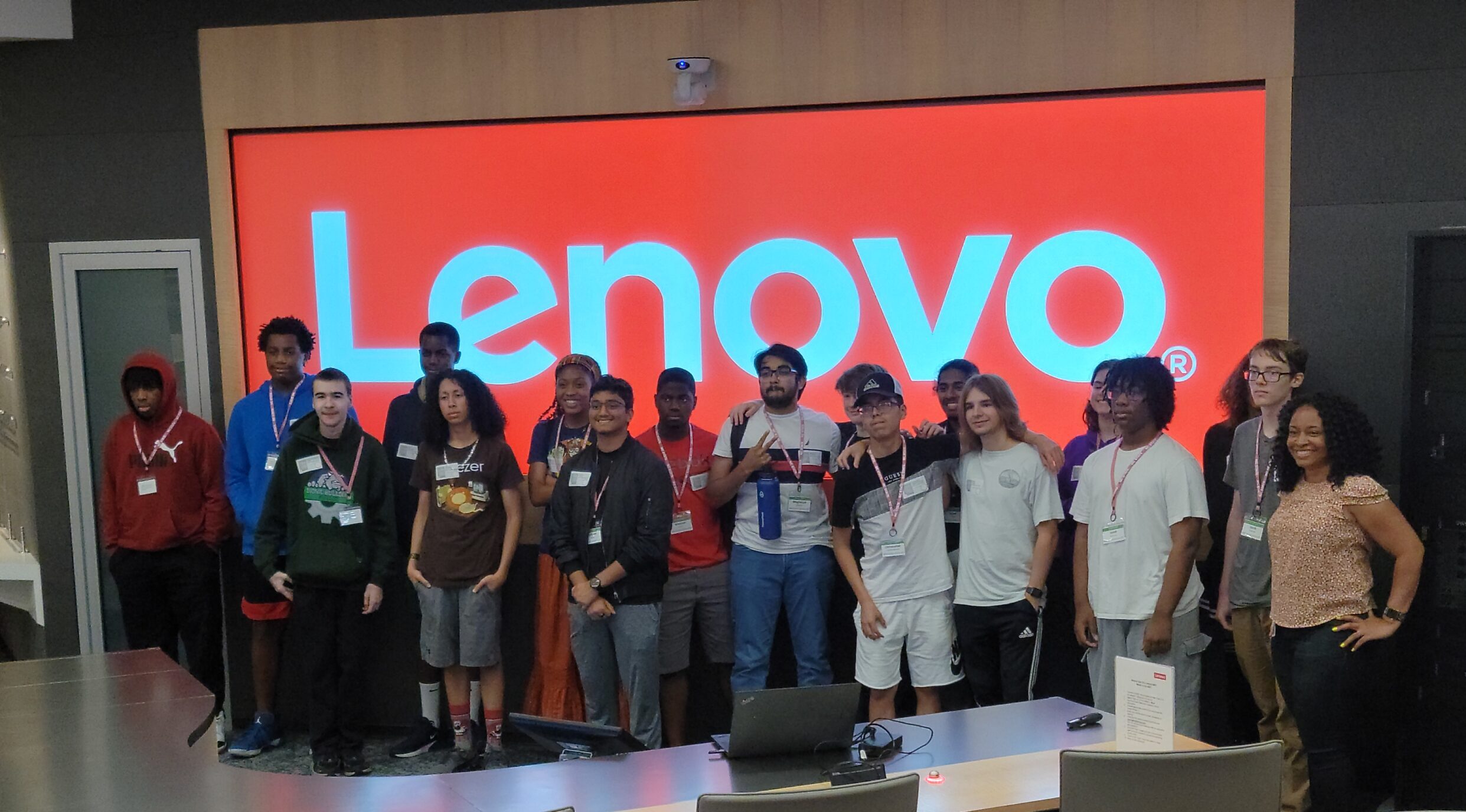
A $50,000 donation from the Newcombe family in honor of Johan Newcombe provided 25 students from Southeast Raleigh Magnet High School and the Friday Institute for Educational Innovation’s North Carolina Math/Science Education Network Pre-College Program (MSEN) the opportunity to participate in a weeklong augmented reality (AR) and virtual reality (VR) camp. The donation provided lunch, a field trip to Lenovo headquarters, transportation for students and a stipend for teachers who supervised the students.
“The funding was the only way that we could have implemented and hosted this camp for the students,” said Braska Williams, director of the MSEN program. “We had one partner, XR Terra, who was providing the instruction on augmented reality, but we needed another financial partner or source to provide the other necessary components of the camp. The high school and MSEN students that we served are students whose families are unable to afford the cost of this type of camp.”
Southeast Raleigh High School was an ideal partner for this camp as a Title I school with a 90% African American and Latinx student population. The school also has an IT and Engineering Academy where students would benefit from this program.
For two separate weeks in June, Southeast Raleigh students and then MSEN students participated in a virtual course on AR and VR with program partner XR Terra, an organization that provides extended reality (XR) training programs.
XR Terra has partnered with MSEN and Wake County Public Schools to increase awareness of immersive technology and its positive impact on teachers and students. Along with the delivery of free professional development for educators, they have been teaching students some of the basics of designing and developing for virtual and augmented reality.
“We want students to envision the possibility of careers that either don’t yet exist or are ones they thought were out of reach,” said Maura Griffith, senior program manager at XR Terra who facilitated the partnership with MSEN and the coordination of the program. “There are many opportunities for careers in extended reality: from the creative side (user interface/user experience designer, 3-D modeling and animation, custom avatar design) to the technical side (software developer, XR technical writer) to the business side (branding in XR, managing social VR apps, product demonstrations)—all are careers of the future.”
The XR Terra curriculum prepared students with the skills needed to begin creating meaningful VR and AR experiences by learning the core concepts of VR/AR development and design. Students got hands-on experience using the 3-D engine Unity, which is used not only in game development but also in the film industry and growing XR industry. They also learned about the digital tools they can use to create content; built a portfolio; and created, executed and presented basic prototypes.
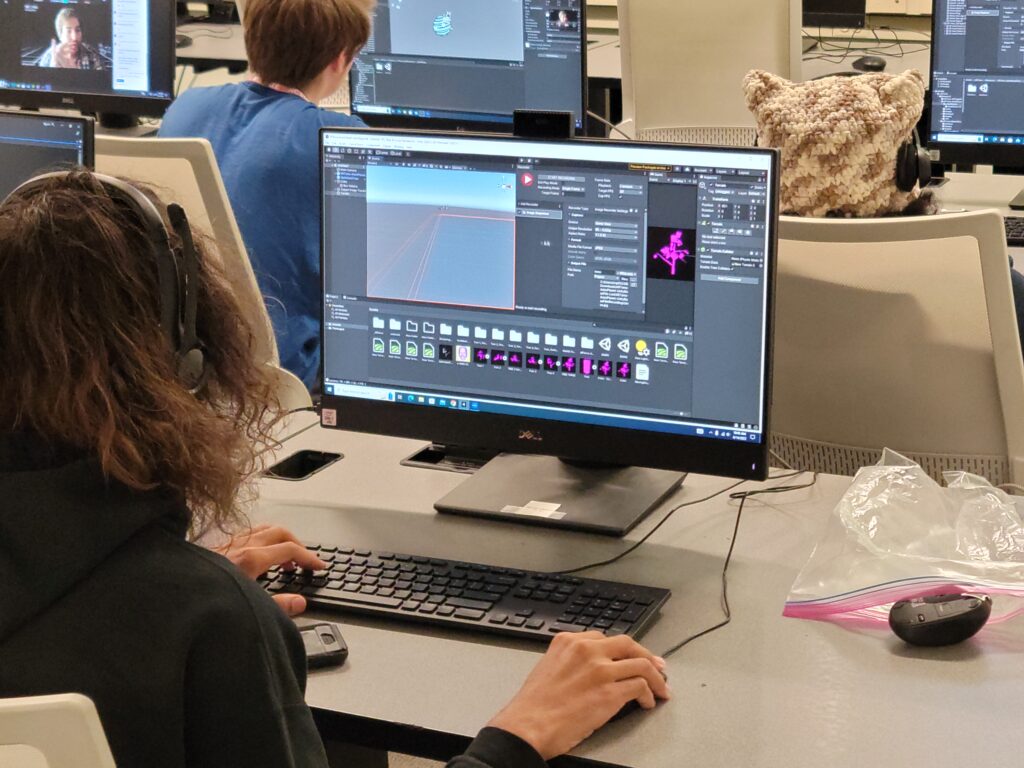
“Part of living in the 21st century is understanding the many types of digital assets available and how to manipulate them,” said Gregory Osborne, VR development instruction and development lead at XR Terra. “This class allows students self-expression, especially when they choose how to show off their faces using face tracking. By learning these skills in a way that emphasizes their creativity, they’ll learn the joy of making something for themselves and then practice sharing it with others.”
“We want students to envision the possibility of careers that either don’t yet exist or are ones they thought were out of reach,” said Maura Griffith, senior program manager at XR Terra.
Not only were students learning, but they noticed that since some of these technologies were so new, MSEN teachers were learning alongside them.
“I really enjoyed the amount of time the teachers took to help anyone that needed help while the guest professors were already helping other students,” said Steven Dickerson, an MSEN student. “They were also learning with us, so it gave us students examples to relate to. Overall, I really enjoyed the content of the program and the dedication of everyone involved.”
After completing the course, students visited Lenovo headquarters, where they heard from a panel of engineers, software experts and marketing professionals about their career pathways, toured their server room and learned how Lenovo utilizes AR and VR.
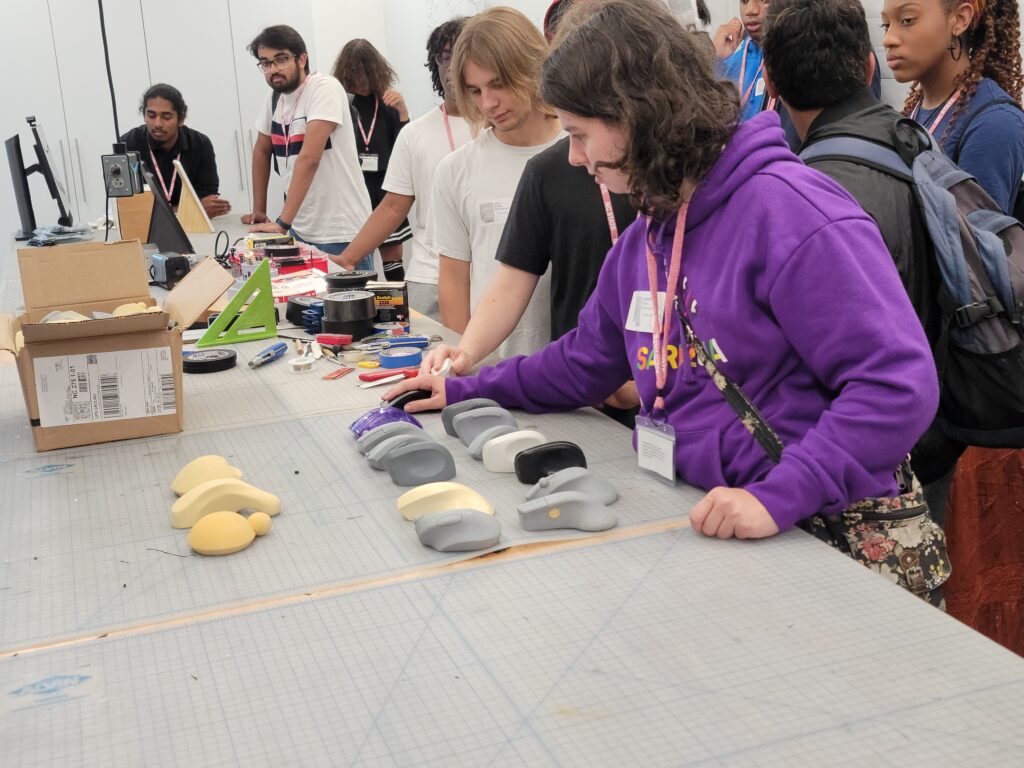
“We enjoyed the fact that it was a beginner’s level course and we understood all of the material,” said MSEN students Gisele and Taylor Brisard. “We also were able to accomplish all of the final projects. We loved the campus experience of eating in the dining hall and walking across campus like we were already in college. During the Lenovo trip, we learned about career paths that we didn’t know existed. We would love to attend another MSEN camp this coming summer.”
For 37 years, the NC State MSEN program has been providing students with experiences that will equip them to attend a four-year college/university to pursue majors in science, technology, engineering and mathematics (STEM) fields. The STEM enrichment program recruits students from underserved populations in grades six through 12.
“In my 29 years as a professional educator, I have yet to find another program that provides instruction in mathematics, science, engineering and communication skills in a manner that is specifically geared toward minorities and females,” said Corey White, a teacher for the MSEN program and the lead adviser for MSEN at Ligon Magnet Middle School. “These two groups have consistently maintained a substantial minority in STEM-related careers. The MSEN Pre-College Program deliberately addresses this discrepancy.”
MSEN has served 548 students through their Saturday Academy, statewide STEM competition day event and summer camps. It currently holds a class or after-school club in five middle schools and two high schools.
“I have already seen the impact of the AR/VR camp on the students,” said Donald McCoy, another MSEN teacher. “As the students realized the possibilities of adding more complex features to their game design, they engaged in brainstorming and strategic planning outside of the classroom. Students asked to enroll in the next camp before this one ended. Finally, some students did not want to close out the camp day. Some students said they would continue to develop their game projects at home.”
- Categories:
